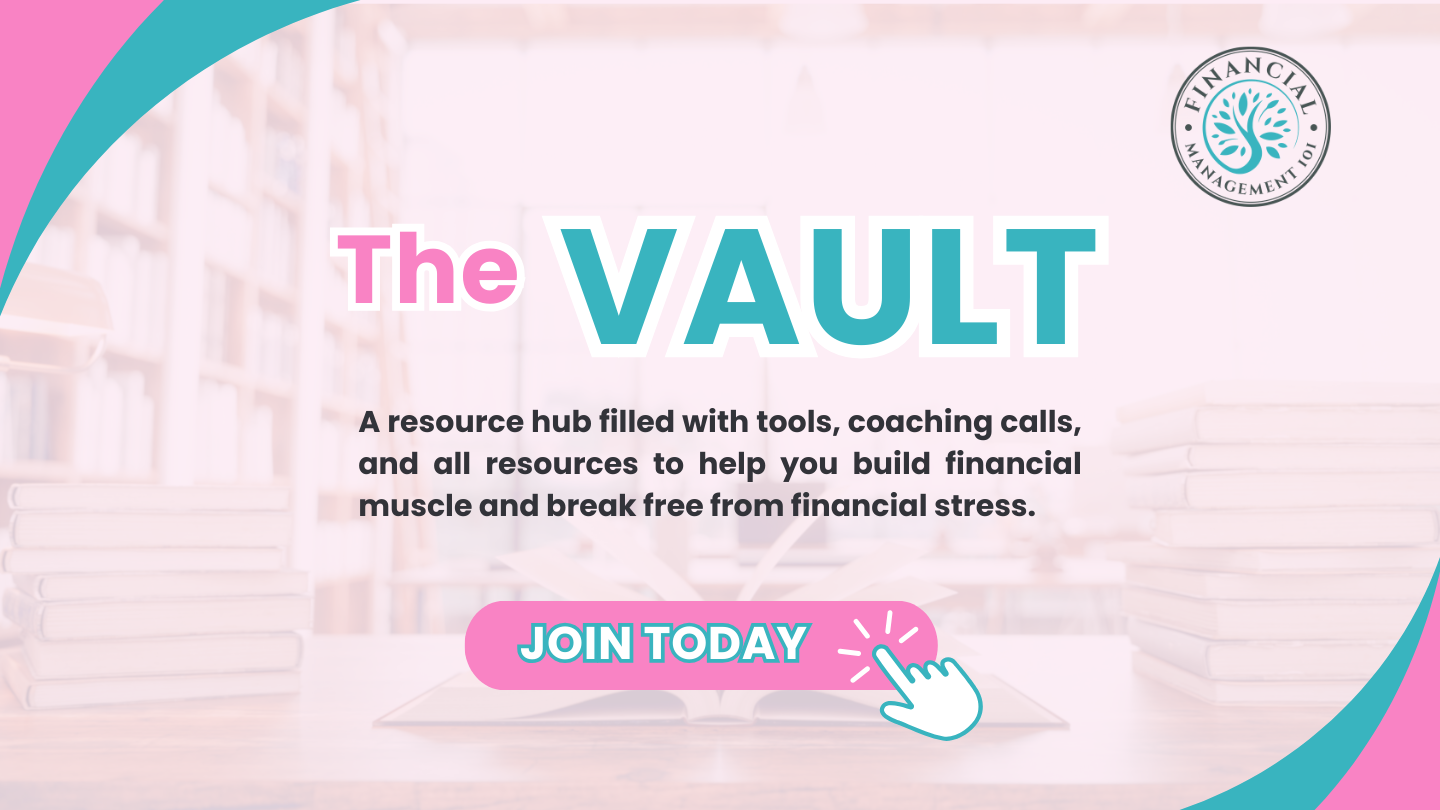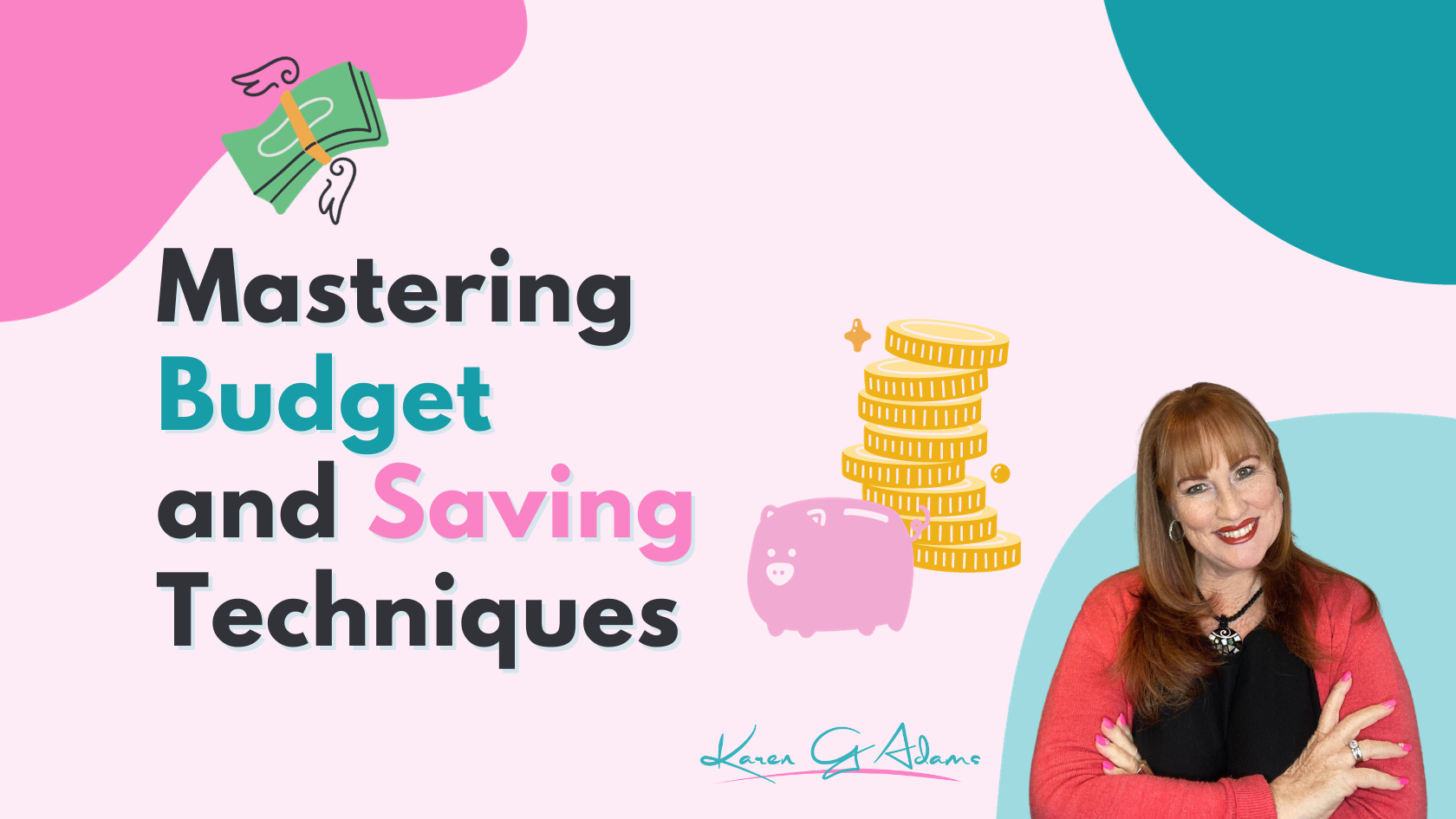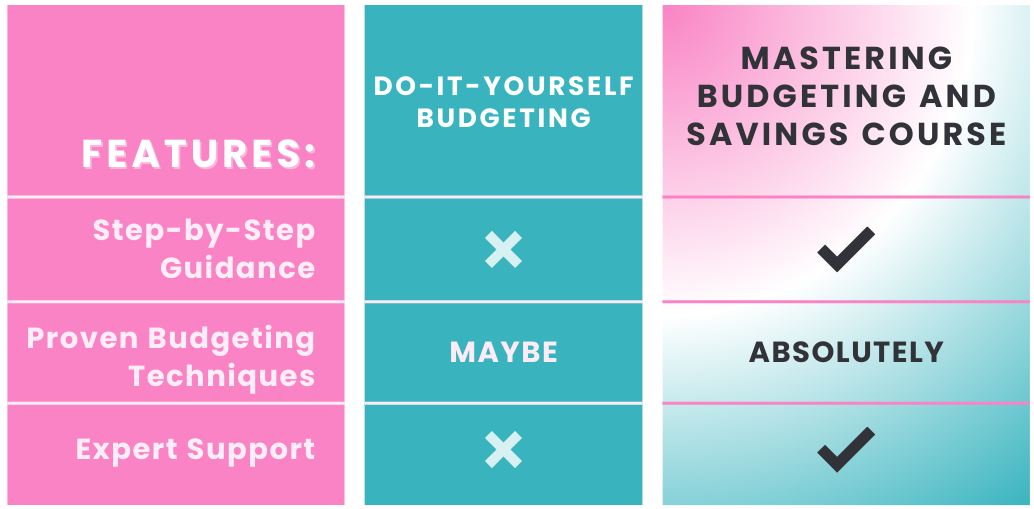
Mar 19, 2025 | Building Emotional Muscle, Building Financial Muscle, Credit Score, Debt, Debt Payment, Debt Repayment, Educational Series, Episodes, Financial Education, Financial Freedom, Financial Health, Financial Management 101, Home Loan, Mindset, Mortgage, Net Worth, Relationships, Retirement, Saving Money, Self Development
We all have a money story. It’s the narrative we’ve built over time based on our experiences, upbringing, and beliefs about money. Some of us grew up hearing, “Money doesn’t grow on trees,” while others were told, “You have to work hard for every penny.” These messages, whether spoken or unspoken, shape how we interact with money as adults.
But what if your money story is holding you back? What if deep down, you believe you’re not capable of financial success or that you’re destined to struggle? The good news is that your money story isn’t set in stone. You have the power to rewrite it.
Here’s how to break free from limiting beliefs and create a financial narrative that empowers you.
STEP 1: KNOW YOUR NUMBERS
Before you can change your money story, you need to understand what it is. Ask yourself:
-
- What did I hear about money growing up?
- How did my parents or caregivers handle money?
- What emotions come up when I think about my finances?
- Do I believe money is a source of stress, power, freedom, or something else?
Write down the recurring patterns you’ve noticed in your financial life. Have you always lived paycheck to paycheck, even when you earn more? Do you sabotage financial success out of guilt or fear? Awareness is the first step to transformation.
STEP 2: CHALLENGE THE BELIEFS THAT NO LONGER SERVE YOU
Many of our money beliefs were inherited, not chosen. But just because you grew up with certain financial patterns doesn’t mean you have to continue them.
Take a belief like, “I’m just bad with money.” Ask yourself: Is this actually true? Or have I just made mistakes in the past that I can learn from? Reframe it: “I am learning how to manage my money in a way that aligns with my goals.”
Your beliefs create your reality. If you constantly tell yourself you’ll never be wealthy, your actions will reflect that. Instead, adopt empowering beliefs like:
-
- “I am capable of building wealth.”
- “Money is a tool that supports my dreams.”
- “I deserve financial abundance.”
STEP 3: REWRITE YOUR MONEY STORY
Now it’s time to create a new money story, one that aligns with your goals and values. Imagine your ideal financial future. What does it look like? How do you feel about money? How do you handle it?
Write down your new story as if it’s already true. For example: “I am financially confident. I make smart decisions with my money, and I attract opportunities for abundance. I feel secure, knowing that I am in control of my finances. Money flows to me easily, and I use it to create a fulfilling life.”
The more you affirm this new story, the more your subconscious mind starts to accept it as reality.

STEP 4: ELIMINATE DEBT STRATEGICALLY
Your environment shapes your mindset. If you’re constantly hearing negative messages about money, it’s harder to shift your beliefs. Seek out people, books, and resources that reinforce your new money story.
This is why I created my Monthly Coaching program, where you can access THE VAULT – a collection of financial courses, tools, and community support designed to help you step into financial empowerment. And if you’re ready for a full financial transformation, the Master Your Money program will guide you through everything you need to break free from financial limitations.
Ready to Master Your Money?
Your financial future isn’t dictated by your past. You have the power to rewrite your money story and create a new reality – one where you feel confident, in control, and financially free.
The question is: What story will you choose to tell yourself from today onward?
The pen is in your hands.

Mar 12, 2025 | Book of the Week, Building Emotional Muscle, Building Financial Muscle, Credit Score, Debt, Debt Payment, Debt Repayment, Educational Series, Financial Education, Financial Freedom, Financial Health, Financial Management 101, Home Loan, Mindset, Mortgage, Net Worth, Relationships, Retirement, Saving Money, Self Development, Side Hustle
If you’ve ever felt like no matter how much you earn, it’s never enough, or if you catch yourself worrying about money even when things are going well, you might be stuck in a scarcity mindset. This mindset keeps you feeling like there’s never enough; enough money, enough opportunities, enough security. But the truth is, abundance is everywhere; we just have to shift our perspective to see it.
Breaking free from scarcity thinking doesn’t just improve your finances; it transforms how you approach life. Let’s explore how you can step into an abundant money mindset and start seeing possibilities instead of limitations.
Step 1: Recognise the Signs of Scarcity Thinking
The first step to shifting your mindset is awareness. Scarcity thinking can show up in many ways, such as:
-
-
- Feeling like you never have enough money, no matter how much you make.
- Being afraid to spend, even on things that align with your values.
- Hoarding money out of fear rather than saving with intention.
- Avoiding financial planning because you assume there’s no way to improve your situation.
- Comparing your financial success to others and feeling discouraged.
If any of these resonate with you, don’t worry – you’re not alone, and these patterns can be changed.
Step 2: Reframe Your Money Beliefs
Scarcity isn’t about how much money you have; it’s about how you think about money. If you believe money is hard to earn or that financial success is only for the lucky few, those beliefs will shape your financial reality.
Start by shifting your internal dialogue. Instead of saying, “I can’t afford that,” try, “How can I afford that?” This simple shift turns money from a limitation into an opportunity for creativity and resourcefulness.
Another powerful reframe is to see money as a tool rather than a source of stress. Money is neutral, it’s how we use it and think about it that determines whether it empowers us or controls us.
Step 3: Cultivate an Abundance Mindset Daily
Shifting from scarcity to abundance requires daily practice. Here are some ways to rewire your thinking:
-
-
- Gratitude Practice: Take a moment each day to appreciate the financial abundance you already have whether it’s a roof over your head, food in your fridge, or even a steady paycheck.
- Generosity: Giving, even in small ways, signals to your brain that there’s more than enough to go around. It could be donating a small amount to charity, tipping generously, or even sharing knowledge with someone who needs it.
- Visualisation: Spend time visualising your ideal financial future. Imagine yourself thriving, making wise financial choices, and feeling completely at ease with money.
Step 4: Take Action Toward Abundance
An abundance mindset isn’t just about thinking differently – it’s also about acting differently. Some action steps include:
-
-
- Investing in Yourself: Whether it’s taking a course, hiring a coach, or developing new skills, investing in yourself creates long-term financial and personal growth.
- Creating Multiple Income Streams: People with an abundance mindset look for opportunities, not just limitations. Could you start a side hustle? Negotiate a raise? Explore passive income options?
- Letting Go of Money Guilt: If you’ve been conditioned to feel guilty about spending or earning money, it’s time to release that. Money is simply an exchange of value, and you deserve financial prosperity.

Step 5: Surround Yourself with Abundance Thinkers
Your environment influences your mindset. If you’re constantly surrounded by negativity about money, it’s harder to adopt an abundance perspective. Seek out people, books, podcasts, and communities that reinforce abundance thinking.
This is exactly why I created my Monthly Coaching program, where you gain access to THE VAULT – a wealth of financial education, tools, and resources to shift your mindset and transform your money habits. And for those ready to take full control of their financial future, the Master Your Money program offers step-by-step guidance on building lasting wealth.
Final Thoughts: Abundance is a Choice
Stepping into an abundant money mindset isn’t about waiting until you have “enough” money – it’s about changing how you view the money you already have. When you see possibilities instead of limitations, you unlock new levels of financial growth and confidence.
You are already capable of abundance. Now, it’s time to claim it.


Mar 6, 2025 | Book of the Week, Building Emotional Muscle, Building Financial Muscle, Credit Score, Debt, Debt Payment, Debt Repayment, Educational Series, Episodes, Financial Education, Financial Freedom, Financial Health, Financial Management 101, Home Loan, Mindset, Mortgage, Net Worth, Relationships, Retirement, Saving Money, Self Development
We’ve all had those moments standing at the checkout, second-guessing a purchase, or staring at a bank statement, feeling a wave of regret. Maybe you’ve told yourself, “I’m just bad with money,” or, “I can’t trust myself to make good financial decisions.” If this sounds familiar, you’re not alone. But here’s the truth: you are not inherently bad with money. You just need to rebuild your financial confidence.
Financial confidence isn’t about knowing every investment strategy or becoming a budgeting master overnight. It’s about trusting yourself to make empowered, intentional choices with your money without fear, guilt, or self-doubt.
So how do you start trusting yourself with money again? Let’s dive into the formula that can help you regain control and move forward with confidence.
STEP 1: Reframe Your Money Story
The beliefs you have about money shape how you handle it. If you’ve experienced financial struggles in the past, it’s easy to assume that you’ll always struggle. But that’s not true you are constantly evolving, and your financial reality can evolve with you.
Take a moment to reflect: What are the money stories you’ve been telling yourself? Do you believe money is hard to earn? Do you think you’re destined to be in debt? Once you identify these limiting beliefs, challenge them. Instead of saying, “I’m terrible with money,” try, “I am learning to manage my money with confidence.” Words matter, and so does your mindset.
STEP 2: Small Wins Lead to Big Confidence
Trust isn’t built overnight it’s created through consistent actions. If you’ve been avoiding your finances out of fear, start small. Set up a weekly “money date” with yourself to review your finances, even if it’s just for 15 minutes. Celebrate the small victories, like paying a bill on time or choosing to cook at home instead of eating out. These small wins add up, reinforcing the belief that you are capable of managing your money wisely.
STEP 3: Shift from Fear to Curiosity
Many people feel anxious when they look at their bank account, but what if you approached your finances with curiosity instead of fear? Instead of saying, “I don’t even want to look at my balance,” try asking yourself, “I wonder what I can learn from my spending habits this month?” By shifting your mindset, you turn financial management into a tool for empowerment rather than a source of stress.

STEP 4: Align Your Spending with Your Values
One of the fastest ways to feel good about your money is to ensure your spending reflects what truly matters to you. If financial guilt is a recurring theme, it may be because you’re spending in ways that don’t align with your priorities.
Ask yourself: What do I value most in life? If it’s family, are you investing in quality time with loved ones? If it’s health, are you prioritising your well-being over impulse purchases? When your spending aligns with your values, financial confidence follows naturally.
STEP 5: Give Yourself Permission to Learn
No one is born knowing how to manage money perfectly. Mistakes will happen, but they don’t define you. What matters is how you respond. Instead of beating yourself up over a financial misstep, treat it as a learning experience.
Ask: “What can I do differently next time?” This shift in perspective turns every challenge into an opportunity for growth, reinforcing your ability to trust yourself.
STEP 5: Give Yourself Permission to Learn
Confidence grows in the right environment. If you’ve been struggling alone, it may be time to seek out support whether that’s a financial coach, a community of like-minded individuals, or access to the right financial education.
That’s why I created my Monthly Coaching program, giving you access to The Vault a treasure trove of financial resources, courses, and guidance to help you build the skills and mindset necessary for long-term success. And if you’re ready to take full control of your finances, my Master Your Money program will guide you through everything you need to know to transform your financial future.

Final Thoughts
Rebuilding financial confidence isn’t about perfection it’s about progress. Every positive step you take strengthens your trust in yourself. You are fully capable of making empowered financial choices, and your journey starts today.
Take the first step, celebrate your wins, and remember: you are not alone in this. With the right mindset, tools, and support, you can rewrite your financial story and step into a future filled with confidence and abundance.
Are you ready to take control? Let’s do this together!

Feb 26, 2025 | Book of the Week, Building Financial Muscle, Credit Score, Debt, Debt Payment, Debt Repayment, Educational Series, Episodes, Financial Education, Financial Freedom, Financial Health, Financial Management 101, Home Loan, Mindset, Mortgage, Net Worth, Relationships, Retirement, Saving Money, Self Development, Side Hustle
What does financial freedom mean to you? For some, it’s living debt-free; for others, it’s having enough savings to retire comfortably. Whatever your vision, one thing is certain: the journey to financial freedom starts with mastering the basics. That’s where the Mastering Budgeting and Savings Course comes in.
What is Financial Freedom?
Financial freedom isn’t about being rich – it’s about having the money to live the life you want without constant stress. Achieving it requires three things:
1. A clear understanding of your finances.
2. A plan to eliminate debt and build savings.
3. The discipline to stick with your plan long-term.
Why Budgeting is the Key to Freedom?
At the heart of every financial success story is a solid budget. Budgeting isn’t about restriction, it’s about prioritising what matters most to you. The Mastering Budgeting and Savings Course teaches you how to:
-
- Allocate your income effectively using the 50/30/20 rule (50% for needs, 30% for wants, and 20% for savings and debt).
- Identify and eliminate unnecessary expenses.
- Set realistic financial goals and track your progress.
How Savings Accelerate Your Journey
Saving money isn’t just about putting cash aside; it’s about creating financial security and opportunities. Through this course, you’ll learn how to:
-
- Build an emergency fund to cover unexpected expenses.
- Automate your savings for long-term goals like a home deposit or retirement.
- Maximise your savings by choosing the right accounts and tools.
Why This Course Works
The Mastering Budgeting and Savings Course is designed for busy individuals who want results. It’s broken down into actionable modules that guide you step-by-step through:
1. Assessing your financial situation.
2. Creating a budget that aligns with your goals.
3. Building and maintaining a sustainable savings plan.
4. Tackling debt with proven strategies.
Testimonials: Real People, Real Results
Meet Karen (yes, another Karen!), a 45-year-old who struggled to save for her dream home while juggling credit card debt. After taking the Mastering Budgeting and Savings Course, she:
- Saved $15,000 for a deposit in two years.
- Paid off her $10,000 credit card balance using the debt snowball method.
- Finally felt in control of her money for the first time in decades.
A Pathway to Financial Freedom
The journey to financial freedom starts with the first step. By enrolling in the Mastering Budgeting and Savings Course, you’ll gain the knowledge and confidence to take control of your money and create the life you’ve always wanted.
Are You Ready?
Financial freedom isn’t a dream – it’s a decision. Take action today and start building the foundation for a brighter tomorrow. Sign up now and make this the year you master your money and achieve financial freedom!
Don’t wait for the perfect moment – take control of your finances now! Enroll in the Mastering Budgeting and Savings Course today and start your journey to financial freedom.

Feb 19, 2025 | Book of the Week, Building Financial Muscle, Credit Score, Debt, Debt Payment, Debt Repayment, Educational Series, Episodes, Financial Education, Financial Freedom, Financial Health, Financial Management 101, Mindset, Mortgage, Net Worth, Relationships, Retirement, Saving Money, Side Hustle
If you’ve ever stayed awake at night worrying about bills, mounting debt, or an uncertain financial future, you’re not alone. Financial stress affects millions of people, but it doesn’t have to control your life. Through personalised support and expert guidance, THE VAULT can help you transform financial stress into lasting financial success.
The True Cost of Financial Stress
Financial stress doesn’t just impact your bank account – it affects every area of your life. Here’s how:
Mental Health
Anxiety and depression often stem from constant money worries.
Relationships
Money is one of the leading causes of conflict in relationships.
Physical Health
Stress-related illnesses like high blood pressure and migraines can arise from financial struggles.
The good news? You don’t have to stay stuck. Monthly Coaching provides the tools and strategies to regain control and start thriving.
How Monthly Coaching Inside THE VAULT Tackles Financial Stress
1. Clarity: Understand Your Money
Financial stress often comes from uncertainty. Where’s your money going? How much debt do you have? Monthly Coaching inside THE VAULT starts by helping you gain clarity. Your coach will work with you to map out your financial picture so you know exactly where you stand.
2. Actionable Plans: One Step At A Time
It’s easy to feel paralysed by the enormity of financial problems. A coach breaks things down into manageable steps, guiding you through proven strategies like those taught in the Mastering Budgeting and Savings Course.
3. Accountability: Stay On Track
Consistency is key to financial success, but life often gets in the way. Monthly check-ins ensure you stay focused on your goals, even when challenges arise.
4. Mindset Shifts: Turn Stress into Motivation
Managing money isn’t just about numbers, it’s about mindset. Coaches help you reframe negative thoughts about money, turning them into empowering beliefs that drive action.
Real Success Stories
Meet James and Laura, parents of two who were drowning in credit card debt and constantly stressed about unexpected expenses. Through Monthly Coaching, they learned how to:
Today, they’re financially stable and planning their first overseas holiday – a goal they once thought was impossible.

THE VAULT: Unlock Everything You Need
With courses, tools, and resources at your fingertips inside THE VAULT, you’ll have everything you need to succeed.
Key resources include:
-
- The Mastering Budgeting and Savings Course, which teaches you to manage your money with confidence.
- Debt reduction tools that help you pay off balances faster.
- Goal-setting worksheets to turn dreams into actionable plans.
From Stress to Success
Financial stress doesn’t have to define your life. With the right support and a clear plan, you can overcome challenges and achieve financial success.
Ready to take the next step? Join THE VAULT today and unlock access to the tools and resources you need to take the stress out of managing your money.

Feb 12, 2025 | Book of the Week, Building Emotional Muscle, Building Financial Muscle, Credit Score, Debt, Debt Payment, Debt Repayment, Educational Series, Financial Education, Financial Freedom, Financial Health, Financial Management 101, Home Loan, Mindset, Mortgage, Net Worth, Saving Money, Self Development
Do you ever feel like your finances are controlling you, instead of the other way around? The good news is that financial control isn’t about being perfect – it’s about making intentional choices and taking consistent steps toward your goals. Let’s break down the five steps that can help you master your money and regain control of your financial future.
STEP 1: KNOW YOUR NUMBERS
Before you can improve, you need to understand your starting point. Here’s how:
- Track your income and expenses. Use an app, spreadsheet, or pen and paper to list every dollar coming in and going out.
- Identify your financial position. Calculate your net worth by subtracting your liabilities (debts) from your assets (savings, property, etc.).
- Spot patterns. Are there expenses you can cut back on or habits you can change?
The insights from this step often surprise people, and they’re the foundation for everything else.
STEP 2: SET SMART GOALS
Vague goals like “save money” don’t work. Instead, use the SMART framework to set goals that are Specific, Measurable, Achievable, Relevant, and Time-bound.
For example:
- Short-term Goal: Save $1,000 for an emergency fund in three months.
- Medium-term Goal: Pay off a $5,000 credit card balance within a year.
- Long-term Goal: Save a 20% deposit for a home in five years
STEP 3: MASTER THE ART OF BUDGETING
The cornerstone of financial success is budgeting—and there’s no better resource to guide you than the Master Your Money Program. This program teaches you to create a budget that balances your needs, wants, and financial goals.
Key takeaways include:
- Understanding the 50/30/20 rule (50% needs, 30% wants, 20% savings/debt repayment).
- Setting up separate accounts for different spending categories.
- Tracking your progress and adjusting as need
STEP 4: ELIMINATE DEBT STRATEGICALLY
Debt doesn’t just drain your wallet; it drains your peace of mind. The Mastering Budgeting and Savings Course provides actionable strategies to tackle debt, including:
- The debt snowball method, which focuses on paying off smaller debts first.
- The debt avalanche method, which prioritizes high-interest debts.
- Techniques for negotiating lower interest rates or consolidating debt.
STEP 5: BUILD A FINANCIAL SAFETY NET
Life is unpredictable, but your finances don’t have to be. Automate your savings to build a robust emergency fund, ideally covering 3–6 months’ worth of expenses. Once your safety net is in place, you can focus on other financial goals with confidence.
Ready to Master Your Money?
Mastering your money isn’t a one-time fix, it’s a journey. But with the right tools, guidance, and a solid plan, you can achieve financial freedom. The Master Your Money Program is for YOU if you are tired of financial stress and ready to transform your relationship with money. Whether you’re managing a family, building your career, or chasing your dreams, this is your chance to gain the clarity, confidence, and habits you need to thrive.
This is more than a mindset shift—it’s a transformation that puts you on the path to lasting financial success! ?
























